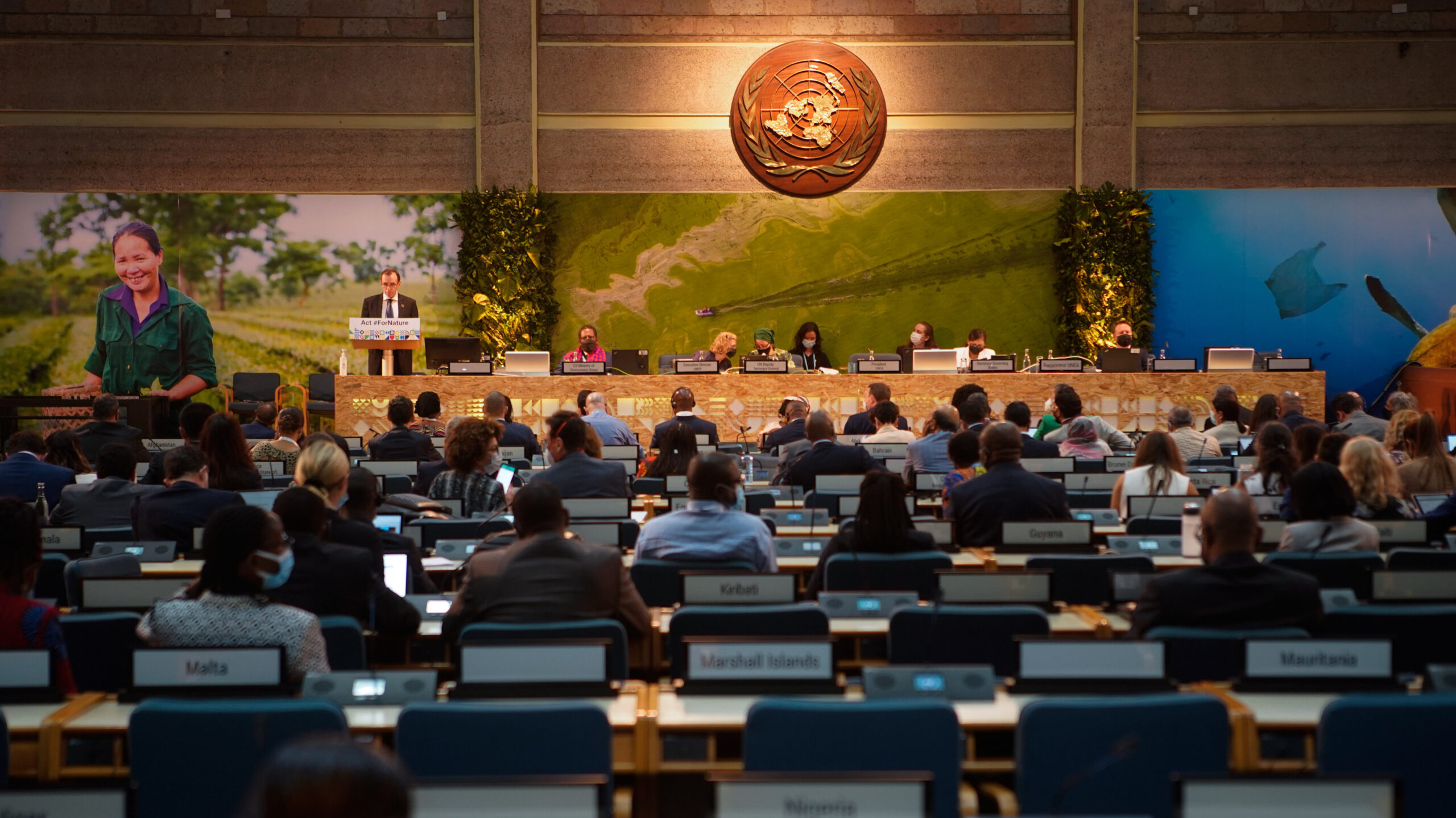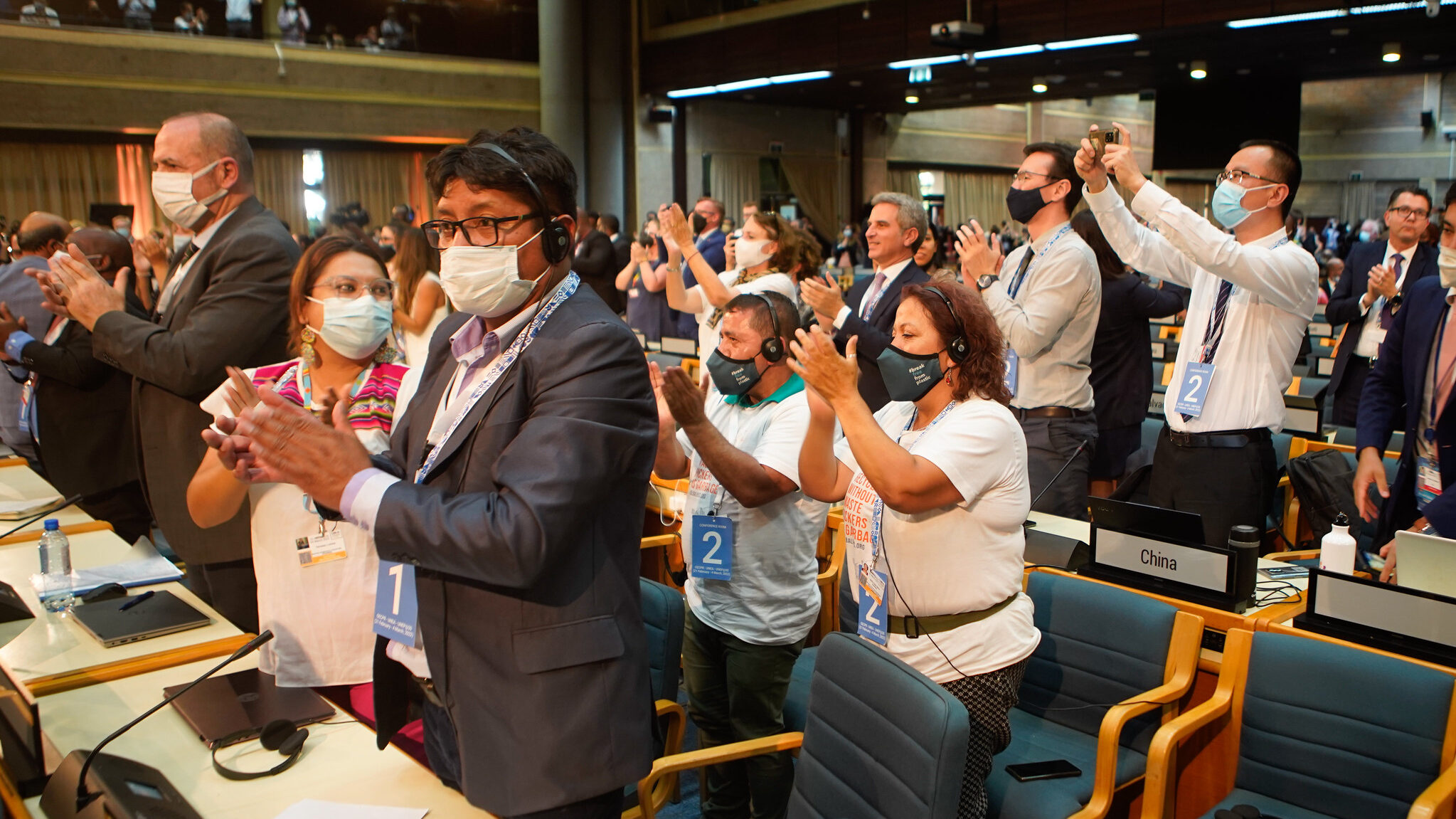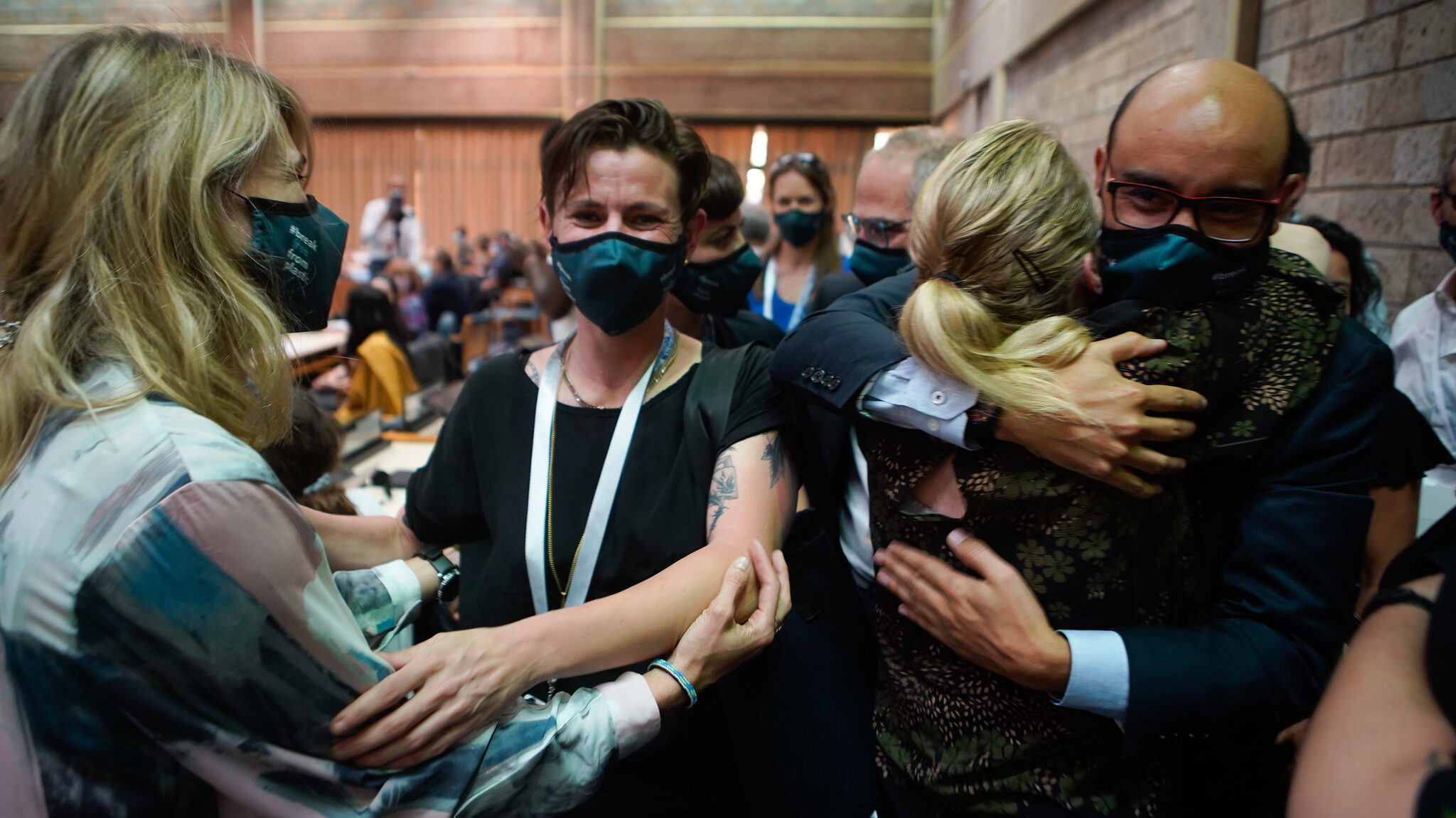Mandate to Negotiate a Plastics Treaty
When CIEL and partners began advocating for a global plastics treaty in 2016, many thought it was ambitious — too ambitious, even impossible. But this year, we celebrated a historic victory that brings our collective vision one step closer to reality. During the resumed fifth UN Environment Assembly (UNEA) in Nairobi, Kenya, 175 countries adopted a mandate calling for the development of a legally binding global treaty to end plastic pollution.



When the gavel dropped and the words “It is so decided” echoed over the microphone, cheers erupted throughout the room and across the globe via streaming video. Negotiators, civil society advocates, and rights-holders alike cried and hugged in celebration. After years of organized advocacy, many long and late-night meetings, and countless bars of chocolate shared across the negotiation table, the CIEL team and our partners succeeded in broadening a previously narrow focus on plastic as an ocean litter issue to one that includes the full polluting life cycle of plastics, from production to consumption to waste and disposal.
But not every moment of the global negotiating process is so electric. CIEL has been at the table since the first whispers of a global response to the plastics crisis, and we’ve helped to build the diverse coalition pushing this work forward. Coordinating this group of over 100 global members requires slow and steady spadework: scheduling meetings across time zones, preparing effective agendas, sharing detailed strategies, aligning diverse positions, juggling live translation, and keeping track of conversations across a multitude of communications platforms. And we supported partners with a steady stream of cutting edge research and analysis. This critical work built the strong, credible, collective platform for the coalition to persuade State delegates. Now, the momentum behind this treaty is palpable, and it is already accelerating action to address the plastics crisis at the local and regional levels.
This plastics treaty mandate is no small feat, and the work toward a plastic-free future is far from over. CIEL and partners are now focused on negotiating a just and effective treaty, and ensuring that public participation, human rights, and social and environmental justice are front and center.
